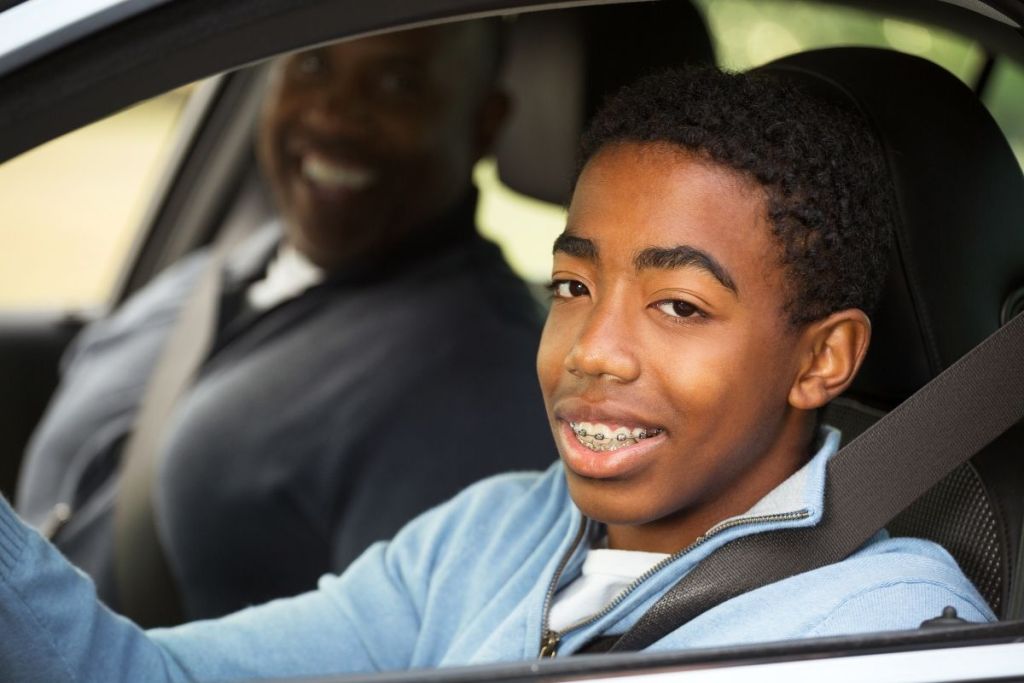If you have a teen who’s learning how to drive or just starting to drive, we give you our full support. Whether you leave the driving lessons to a professional or take it on yourself, your teenager is going to become another person on the road that has to figure out how to get through a roundabout. It’s natural to have anxiety about your teen driving. That’s why we are helping you come up with teen driving behaviors that will keep everyone safe on the road.

You have to watch your own driving
What might be even scarier to you is that your teen has been watching how you drive for years. That whole “do as I say, not as I do” doesn’t work here. If you keep grabbing for your phone, messing with the radio, or looking at everything but the road, your teen is paying attention to that.
This is all about having integrity. Drive how you would want your child to drive. That way, when you are in the passenger seat and they reach for their phone, you’ll be able to hit them with the “no phone while driving” and they won’t be able to throw back at you that they see you do it.
Teach them about defensive driving
These days, if you aren’t watching what the other cars are doing, you’re more likely to get into an accident. While you should teach your child what defensive and offensive driving are, and for teens who don’t have a lot of experience on the road, defensive is better.
There are pros and cons to both, but if your teen is already nervous about driving, and you’re worried about how they’ll do on the road, defensive driving is a good place to start. If you’re personally an offensive driver, explain to your child why you are. When they become more comfortable behind the wheel and have their safe driving routine soundly in place, they can pick which one they are, or what mix of the two styles they like.
The basic driving rules will always reign supreme
While a lot of us don’t stick to the old “10 and 2” or the new “9 and 3” way to hold the steering wheel, there are rules that no matter their driving style, your teen should have committed to memory.
- Turn signals aren’t an option
- The speed limit isn’t voluntary
- Seatbelts are the only belt you have to wear
- Take care of your car like you do your phone (or better)
These are only a few but crucial basics that everyone — no matter who is driving and no matter who is in the car — follows at all times.
It’s a wonderful thing that your teen is driving. They’ll be able to take themselves to and from school, help out with errands, and on days when you just don’t want to drive, your teen will play taxi for you while you relax in the passenger seat. Maybe not completely relax — but if you make sure to talk about these teen driving behaviors with your child, you should be able to keep your eyes open.




